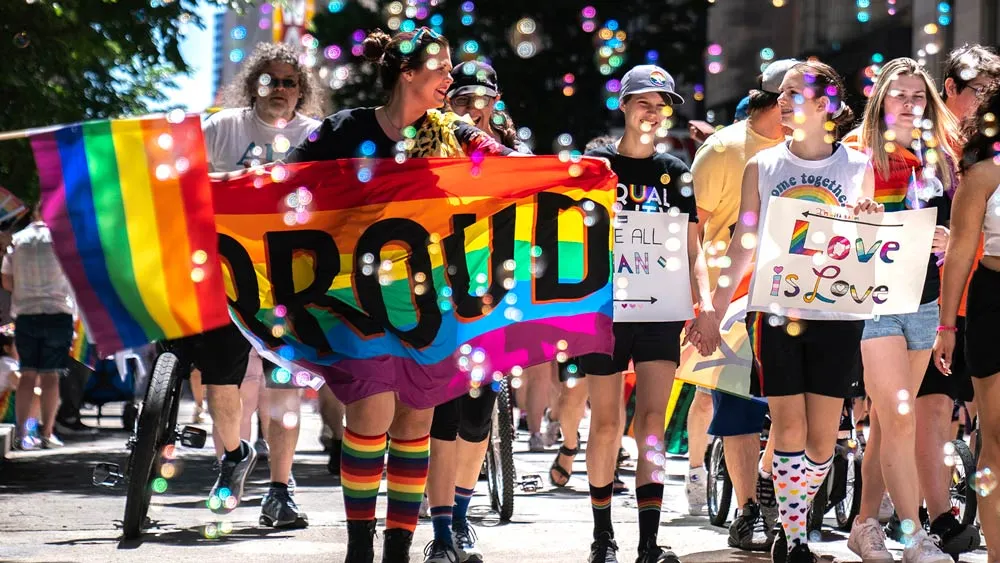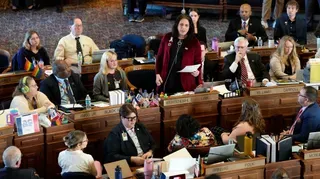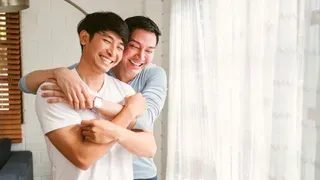April 23, 2013
Fort Lauderdale Trans Symposium Forwards Mission of Educating Medical Field
Kevin Mark Kline READ TIME: 3 MIN.
It's pouring rain outside, but those inside the conference rooms at the Embassy Suites in Fort Lauderdale are too engrossed in their seminars to care.
During the second day of the third annual Transgender Symposium, the conference has drawn doctors, medical students, and the transgender community to help educate the medical community about the special needs of transgender patients.
In one room, guests learned about the process of the gender reassignment surgery as well as the physical and emotional healing process that follows. Next door, a doctor led a seminar about HIV/AIDS in the transgender community. In another conference room, a lecture on transgender youth turned into a discussion amongst parents, medical professionals and three youths who came to talk about their experiences.
Tori Gabriel, the mother of a transgender teen, told the story of how her family struggled to find the cause of her son's anguish five years ago. Then identifying as an 11-year-old girl, Tori's son became isolated, wore black, didn't make eye contact, and stopped being affectionate with family. Gabriel found a picture he had drawn of him with a girl, and initially thought he was gay. For the next year, the family brought their son to the hospital four times for cutting and suicidal ideations. Finally, with support from an online transgender teen group, he came out to his family that he didn't belong in the female body he was born in.
"It was the worst year of our lives. It was really scary," Gabriel remembered. "When I look at now, how happy he is now... It's like I have my kid back."
Today, her son identifies as a male and has blossomed. He smiles, shows off his face happily and continues to communicate with his online support group. However, another struggle for the Gabriels was finding medical help for their son. Many doctors were not familiar with dealing with transgender people, and it took multiple referrals before they found a doctor who could help their son with hormone therapy.
Gabriel says it was like "finding a needle in a haystack."
This is not an uncommon story for transgender patients, and that's something Jodie Reichman is trying to change. Now in the third year of the medical symposium, it has grown rapidly from a 90-person standing room only meeting to a two-day affair at a hotel. This year, registration had to be reopened so more people could attend. It included doctors of all disciplines, case managers, and students from medical and nursing schools.
"It's finally got to the point of where I had envisioned this when we first started it," Reichman said.
Working in HIV/AIDS for 27 years, for the last four years she has been the transgender program director for the Broward County Health Department. In her experience, the transgender community tends to be overlooked in LGBT causes.
"I still get calls from a lot of people in the community who can't find providers that they're comfortable with, who are not educated," she said.
Reichman and the Health Department are working to compile a directory of doctors who are considered transgender friendly by the community. She also tries to find out why a certain doctor doesn't treat transgender patients, and she gets three responses: A lack of education, it goes against their religion, and because they don't want to.
Unfortunately, Reichman said, the majority of responses are the latter two.
"That's when I come back and hit them with the Hippocratic Oath. When you graduate, you get that license in your hand and you medically treat somebody, you treat a human being, and I don't care what that human being is or who that human being is. They come to you for care because they need care," Reichman said.







